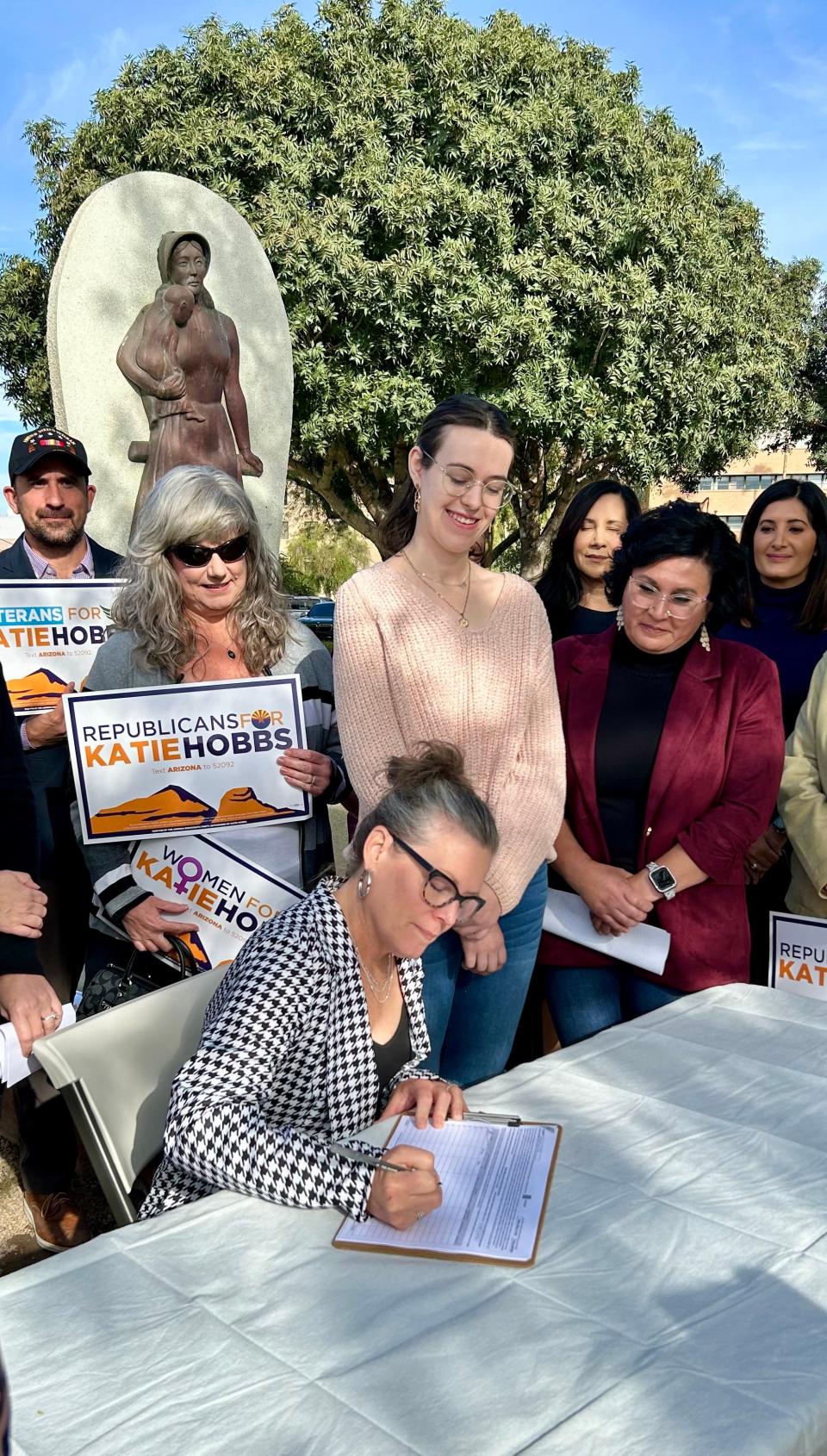I once performed abortions. Why I'd vote against Arizona's abortion initiative
Arizona voters will likely see an initiative on the November ballot amending the state Constitution to allow abortion-on-demand for any reason or no reason at all up to birth.
Signatures are being collected now to get his initiative on the ballot, and you may be asked to sign one.
I urge everyone to consider carefully before doing so.
The promoters of this initiative are not explaining that the initiative would effectively legalize elective abortion up to birth.
They are promoting this measure solely on the basis of freedom of choice, women’s health care and access to abortion services without explaining what the initiative actually means legally.
Abortion can continue to protect 'health'

The language of the initiative states that there would be no restrictions on abortion whatever up to the point of fetal viability that occurs at around 22-23 weeks of gestation on average.
After viability, the initiative would prevent the state from enacting, adopting or enforcing any law that denies, restricts or interferes with an abortion that “in the good faith judgment of a treating health care professional is necessary to protect the life or physical or mental health of the pregnant individual.”
This is essentially the language adopted by the U.S. Supreme Court in 1973 in its Roe v. Wade decision.
In legal documents, every word has a specific meaning. Roe did not define what the word “health” encompasses in the case of post-viability abortions.
Doe v. Bolton, a companion case to Roe ruled on the same day in 1973, did define the term “health” in this regard and stated that the term included the patient’s physical, mental, economic and social health.
How compromised does a women’s physical or mental health have to be to justify a post-viability abortion?
How rich does one have to be to be economically healthy?
What does social health even mean?
Unfortunately, no limits of any kind were placed on the definitions.
Teen wanted an abortion to attend prom
I once performed an abortion on a 17-year-old patient when she presented for her fifth abortion.
She made it clear that the only reason she wanted the abortion was so that she would not be pregnant for her senior prom. That is only one example of what the term “health” could encompass.
The “health” exception is so broad and undefined that any abortion at any stage of pregnancy for any real reason can be justified on the basis of health.
This initiative is not about whether a voter is pro-choice or pro-life.
Why abortion in Arizona: Is not health care
A majority of voters favor abortion on demand in the first trimester (up to about 13 weeks gestation), but the numbers fall off rapidly when voters are specifically asked about elective abortion later in pregnancy.
Only about 1 in 5 voters favor post-viability abortions except in the most dire of circumstances.
Current Arizona law allows abortion up to 15 weeks with no exception for rape or incest. A challenge to that law is still before the state Supreme Court and the outcome is far from certain.
Loose definitions are dangerous. Vote no
A more tightly worded initiative would eliminate concerns about these rare cases without throwing the door wide open to completely unrestricted abortion.
These abortions could occur post-viability based solely on the “good faith” judgment of a financially interested health care professional (notice that it does not say “doctor”) with no oversight by the state or the medical profession whatsoever.
The Arizona Abortion Access Act is couched in vague legal language that conceals the true intent and reach of the initiative.
It goes way too far to accomplish the goal of securing reasonable and realistic access to women’s health care.
I urge you to consider this carefully. Decline to sign this intentionally overbroad initiative petition, or vote against it in November.
Dr. Anthony Levatino is an Arizona board-certified obstetrician/gynecologist who stopped performing abortions in 1985. He teaches endocrinology-reproductive medicine at Burrell College of Osteopathic Medicine in Las Cruces, N.M. He lives in Eloy. Reach him at tonylev@gmail.com.
This article originally appeared on Arizona Republic: Arizona abortion initiative allows much more than you think

